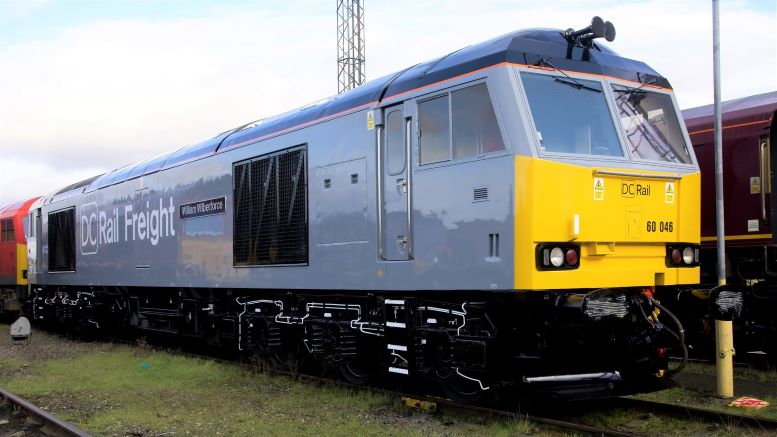
Rail freight company DCRail has taken delivery of the first of four Class 60 locomotives, which will be used for movement of construction materials by rail.
DC Rail is part of the Cappagh Group of Companies, which provides a wide range of construction services and has annual turnover of over £100 million. The loco investment for an undisclosed sum is part of Cappagh’s strategy of moving construction freight off the roads.

Cappagh was advised by rail, shipping and logistics firm Myton Law on both DCRail’s purchase agreement and overhaul contract with DB Cargo (UK) Limited. Chris Thornes, formerly head of commercial law at DB Cargo UK and with ten years’ experience in the rail industry, led the Myton team.
The first locomotive, appropriately enough for the Hull-based lawyers, has been named ‘William Wilberforce’ in commemoration of the 19th Century anti-slavery campaigner and Hull MP.
DB Cargo is modernising the four locos for DCRail at the DB Cargo engineering facility near Nottingham. The three remaining locomotives will be delivered by Summer 2020.

Cappagh’s director of rail David Fletcher said, “This is a significant investment for DCRail and Cappagh and required in depth rail sector legal expertise. Having worked with Chris Thornes on many occasions, we were pleased to draw on his specialist legal knowledge for these agreements.”
The William Wilberforce loco, number 60046, is capable of hauling the heaviest trains running in the UK, carrying over 2,200 tonnes of material. Initially, this first locomotive will operate between Carlisle and Boston in Lincolnshire over the Settle & Carlisle line.

However, DCRail plans to open a new construction freight hub near Wembley in north London during the summer of 2020. Once that is in operation, all four Class 60 locomotives will haul materials, including aggregates and construction soils, to the new hub, taking these loads off the roads.
Cappagh’s aim is to reduce the environmental impact of its operations, with each train carrying the equivalent of 110 lorry loads – the CO2 emissions per tonne delivered by rail are estimated to be less than half that of road.


Be the first to comment